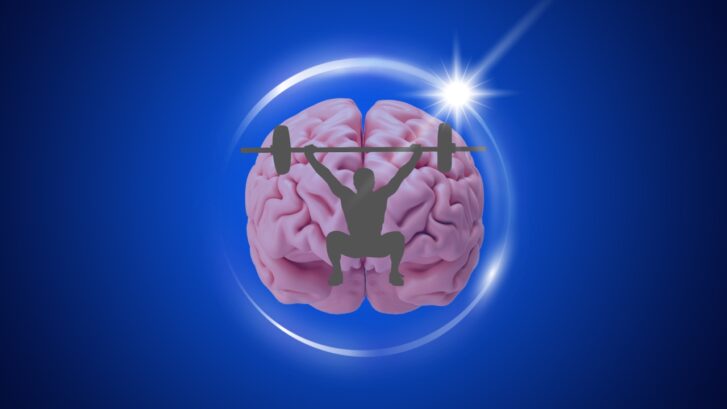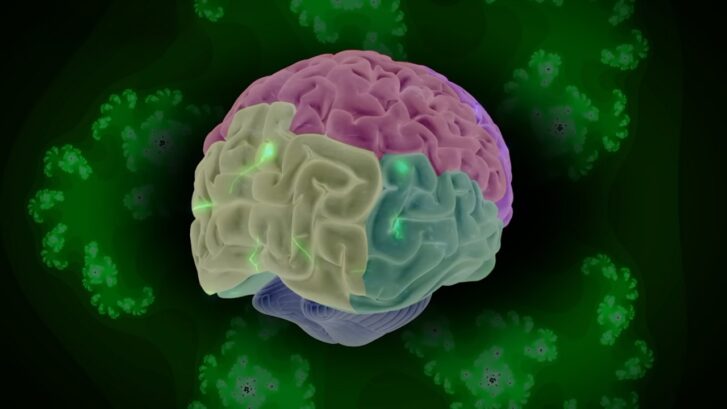Many overlook the powerful connection between physical strength exercises and mental acuity. The act of lifting weights, often seen as a muscle-building endeavor, holds profound implications for the brain’s health.
Scientists and health professionals have begun to uncover how regular, structured resistance training not only fortifies muscles but also fortifies the mind.
Physical Exercise and Brain Function
Contrary to common belief, muscle-strengthening activities extend their benefits beyond the gym. They play a crucial role in enhancing brain function. Research demonstrates that engaging in resistance training increases blood flow to the brain.
If you are looking for a good weightlifting program for beginners, check out Torokhtiy’s. This enhanced circulation delivers more oxygen and nutrients, vital for cognitive operations. The effect? Improved attention, sharper memory, and quicker problem-solving abilities.
Cognitive Benefits
Weight lifting transcends physical boundaries, fostering significant cognitive enhancements. Researchers have observed a direct correlation between resistance training and improved brain function.
Individuals who incorporate weight lifting into their routines exhibit enhanced memory, better problem-solving skills, and increased attention span. The underlying principle involves increased blood flow to the brain during physical exertion, which facilitates the delivery of oxygen and essential nutrients.
Consequently, the brain’s performance across various domains receives a substantial boost. Regular participants in resistance training report feeling mentally sharper and more focused in their daily activities.
Such findings underscore the vital role of physical exercise, particularly weight lifting, in maintaining and improving cognitive health.
Mental Well-being
The impact of weight lifting extends beyond cognitive enhancement, serving as a bulwark against mental health struggles. Empirical evidence suggests a pronounced decrease in anxiety and depression symptoms among individuals who engage in resistance training.
The activity fosters the release of endorphins, the brain’s natural antidepressants, promoting a state of well-being and happiness. Regular engagement in weight lifting cultivates resilience against stress and mitigates feelings of melancholy, offering a natural remedy to mental health challenges.
Such exercises act as a cornerstone for not only physical but also mental health, providing a dual benefit.
Brain Aging and Exercise
Regular weight lifting has a profound impact on the aging brain, offering a shield against the natural cognitive decline that comes with age. Studies have linked resistance training with improvements in memory, especially among older adults.
The activity boosts neuroplasticity, the brain’s ability to form and reorganize synaptic connections, especially in response to learning or experience.
This process is crucial for memory retention and learning new skills. Furthermore, weight lifting has been associated with a reduction in the risk of developing neurodegenerative diseases such as Alzheimer’s.
By maintaining a routine that includes weight lifting, individuals can foster a healthier brain, preserving its function and delaying the effects of aging. Such practices promote longevity and improve quality of life, making resistance training a critical component of healthy aging.
Metabolic Effects on Cognitive Health
The relationship between metabolic health and cognitive function is well-documented, with weight lifting playing a pivotal role in this connection.
Engaging in resistance training improves insulin sensitivity and glucose metabolism, factors that are directly linked to brain health. Improved metabolic function facilitates the efficient use of glucose in the brain, which is essential for cognitive operations.
Regular weight lifting can thus contribute to a reduced risk of metabolic disorders such as type 2 diabetes, which are known to negatively impact cognitive function.
Additionally, the balance in blood sugar levels supports overall brain health, enhancing cognitive abilities and potentially lowering the risk of cognitive decline. Through the lens of metabolic health, weight lifting emerges as a key player in maintaining cognitive function and preventing metabolic disorders that can affect the brain.
Enhanced Neurogenesis
Weight lifting stimulates the brain to produce new neurons, a process known as neurogenesis. Studies indicate that regular, structured resistance training can lead to an increase in the production of neural cells in the hippocampus, a region vital for memory and learning.
By encouraging the growth of new brain cells, weight lifting not only supports cognitive function but also contributes to a more resilient brain structure.
Stress Reduction and Emotional Regulation
Resistance training acts as a powerful tool for managing stress and emotions. By engaging in weight lifting, individuals experience a reduction in levels of the body’s stress hormones, such as cortisol.
Studies suggest that engaging in resistance training can also play a crucial role in mitigating symptoms of Acute Stress Disorder, offering individuals a holistic approach to emotional well-being.
Simultaneously, it promotes the release of neurotransmitters that are responsible for mood regulation, including serotonin and dopamine. As a result, those who participate in regular weight lifting sessions often report a more stable emotional state and a better capacity to cope with stress.
Improved Sleep Quality
The benefits of weight lifting extend into the realm of sleep, offering improvements in both quality and duration. Exercise, particularly resistance training, has been shown to help normalize sleep patterns and can even alleviate symptoms of sleep disorders such as insomnia.
A good night’s sleep is essential for brain health, as it is during these rest periods that the brain processes information, consolidates memory, and repairs itself. Therefore, weight lifting indirectly supports cognitive function by enhancing the quality of sleep.
Increased Brain-derived Neurotrophic Factor (BDNF)
Resistance training increases the levels of Brain-derived Neurotrophic Factor (BDNF) in the brain. BDNF is a critical protein that supports the survival of existing neurons and encourages the growth and differentiation of new neurons and synapses.
Higher levels of BDNF are associated with improved cognitive functions, such as learning and memory, and can also offer protection against cognitive decline with age.
Support for Executive Functions
Weight lifting can have a pronounced effect on executive functions, which include skills such as planning, organization, strategic thinking, and impulse control.
By improving blood flow to the prefrontal cortex—the area of the brain responsible for these higher-level cognitive processes—resistance training can enhance an individual’s ability to manage tasks, make decisions, and resist distractions.
Social and Psychological Benefits
Beyond the biochemical and neurological impacts, weight lifting carries significant social and psychological benefits. It often takes place in community settings such as gyms, where individuals can form supportive relationships and share in the collective experience of improving physical health.
The confidence gained from achieving strength training goals can translate into a greater sense of self-efficacy and an overall positive outlook on life.
FAQs
Does BDNF Repair the Brain?
BDNF (brain-derived neurotrophic factor) helps protect and repair brain cells, making it important for long-term memory.
Do High IQ People Exercise?
Yes, high-IQ individuals often engage in regular exercise, which can positively impact brain health and cognitive function.
Can Lifting Weights Prevent Alzheimer’s?
Strength training (lifting weights) may help protect brain areas vulnerable to Alzheimer’s disease, especially when done regularly.
Does Weightlifting Help Anxiety?
Yes, weightlifting and resistance training can reduce anxiety and improve mental well-being by promoting better sleep and overall health.
Conclusion
Incorporating weight lifting into a regular exercise regimen offers a multitude of benefits that extend well beyond the physical. From fostering neurogenesis and reducing stress to improving sleep and executive functions, the impact on brain health is profound.
Moreover, the social and psychological advantages contribute to a well-rounded approach to mental well-being.
















